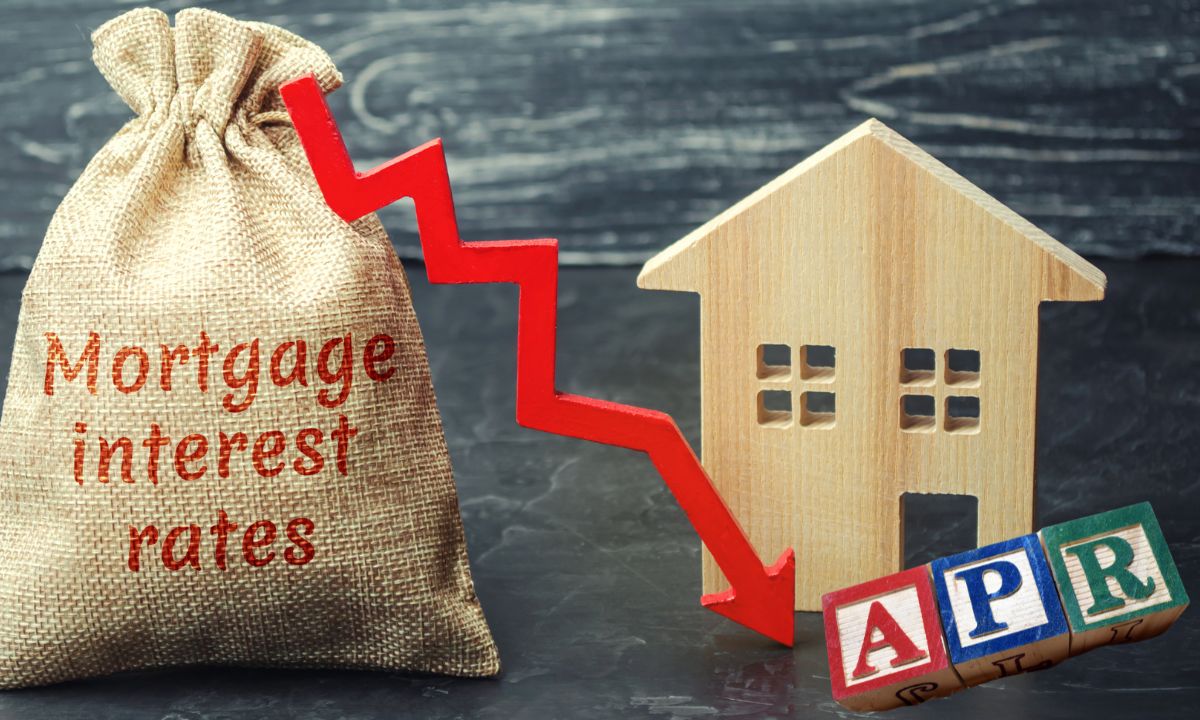 Filing for bankruptcy can make your dream of homeownership feel distant, but it doesn’t have to be the end of the journey. While there are challenges, understanding how bankruptcy impacts your finances and planning strategically can set you on the right path. Here’s a step-by-step guide to buying a home after bankruptcy.
Filing for bankruptcy can make your dream of homeownership feel distant, but it doesn’t have to be the end of the journey. While there are challenges, understanding how bankruptcy impacts your finances and planning strategically can set you on the right path. Here’s a step-by-step guide to buying a home after bankruptcy.
The Long-Term Impact of Bankruptcy
Bankruptcy creates immediate financial relief but also leaves a lasting mark on your credit report. This can affect your ability to qualify for a mortgage, but it’s important to remember that bankruptcy doesn’t close the door to homeownership forever.
The Role of Credit Scores
One of the biggest hurdles after bankruptcy is the impact on your credit score. Your score plays a central role in mortgage approval. After bankruptcy, it’s crucial to focus on rebuilding your credit. Responsible management of your debts—paying bills on time, keeping credit card balances low, and avoiding new credit applications—can help improve your credit score over time.
The Waiting Period
Most mortgage lenders require a waiting period after bankruptcy before you can apply for a mortgage. The waiting period varies depending on the type of bankruptcy filed and the loan program you’re pursuing:
- Chapter 7 bankruptcy: You’ll need to wait at least 2 years before applying for an FHA or VA loan, and up to 4 years for conventional loans.
- Chapter 13 bankruptcy: The waiting period may be as short as 1 year after filing if you’ve made on-time payments under your repayment plan, but 2 years after discharge is generally the norm for FHA and VA loans.
Exploring Government-Backed Loans
Government-backed loans like FHA and VA loans are often more forgiving for individuals with a bankruptcy on their record. These loans offer the chance to become a homeowner with lower credit score requirements and down payments, although you may face slightly higher interest rates compared to other loan options.
Interest Rates After Bankruptcy
While bankruptcy can lead to higher interest rates initially, you’re not stuck with those rates forever. By improving your credit score and demonstrating financial responsibility post-bankruptcy, you can negotiate better terms or refinance your mortgage later to secure a lower rate.
Financial Counseling and Expert Advice
Seeking professional advice from mortgage consultants and financial advisors can be a game-changer in your journey to homeownership. They can help you navigate loan options, improve your financial standing, and guide you through the mortgage process after bankruptcy.
Rebuilding and Moving Forward
Bankruptcy may feel like a setback, but it doesn’t define your future. By focusing on rebuilding your credit, understanding your loan options, and following a structured financial plan, you can achieve your goal of homeownership despite past financial challenges.
Buying a home after bankruptcy requires patience, planning, and financial discipline. With the right approach, you can move past the setbacks of bankruptcy and make homeownership a reality.
 When buying a home, there are many expenses to think about, title insurance might seem like just another one on the list. Conversely, this investment is important and can save you a lot of stress and money in the long run. Here’s why the cost of title insurance is well worth it.
When buying a home, there are many expenses to think about, title insurance might seem like just another one on the list. Conversely, this investment is important and can save you a lot of stress and money in the long run. Here’s why the cost of title insurance is well worth it. When you’re searching for a home, knowing the state of the local market is essential. Whether it’s a buyer’s or seller’s market can influence everything from price negotiations to how quickly homes sell. So, how can you tell if your dream neighborhood is favoring buyers? Here are some useful tips to help you gauge the market:
When you’re searching for a home, knowing the state of the local market is essential. Whether it’s a buyer’s or seller’s market can influence everything from price negotiations to how quickly homes sell. So, how can you tell if your dream neighborhood is favoring buyers? Here are some useful tips to help you gauge the market: With the release of the PCE Index data, we are seeing the trend hold as inflation continues to slow down. This gives the Federal Reserve room to continue its rate cuts in the future. Following the positive news for inflation data, the GDP has also seen a larger-than-expected growth of 3% this quarter. The only data running against the tide is the Consumer Confidence reports, which reported to show that consumers are at their most anxious since 2021. We should expect a greater impact on the lending and broader markets ahead of the elections.
With the release of the PCE Index data, we are seeing the trend hold as inflation continues to slow down. This gives the Federal Reserve room to continue its rate cuts in the future. Following the positive news for inflation data, the GDP has also seen a larger-than-expected growth of 3% this quarter. The only data running against the tide is the Consumer Confidence reports, which reported to show that consumers are at their most anxious since 2021. We should expect a greater impact on the lending and broader markets ahead of the elections. Renting a home is a good option for some, but buying a home just might be the best thing for you. When you rent a home, you send money to someone else every month in exchange for knowing that you can call on your landlord when the roof leaks, an appliance stops working or your bathroom faucet breaks.
Renting a home is a good option for some, but buying a home just might be the best thing for you. When you rent a home, you send money to someone else every month in exchange for knowing that you can call on your landlord when the roof leaks, an appliance stops working or your bathroom faucet breaks. If you’re gearing up to dive into the world of real estate, there are a few key terms you’ll want to wrap your head around before taking the plunge. Today, we’re demystifying APR and interest rate, two crucial concepts that can impact your home-buying journey. Don’t worry, I’ll break it down in simple terms so you can confidently navigate the process like a pro.
If you’re gearing up to dive into the world of real estate, there are a few key terms you’ll want to wrap your head around before taking the plunge. Today, we’re demystifying APR and interest rate, two crucial concepts that can impact your home-buying journey. Don’t worry, I’ll break it down in simple terms so you can confidently navigate the process like a pro. If you plan on retiring soon, you are probably looking at a few options that can get you over the hump. You are probably excited to start a new phase of life. With a record number of people closing in on their retirement age, many are starting to assess their resources to make sure they have enough money to last them for the rest of their lives. If you already own a home, you might be able to tap into your home equity to help you fuel your retirement.
If you plan on retiring soon, you are probably looking at a few options that can get you over the hump. You are probably excited to start a new phase of life. With a record number of people closing in on their retirement age, many are starting to assess their resources to make sure they have enough money to last them for the rest of their lives. If you already own a home, you might be able to tap into your home equity to help you fuel your retirement. When considering the journey of purchasing a new home, one of the fundamental decisions you’ll encounter revolves around determining the appropriate amount of money to allocate for your down payment. It’s a decision-making process that involves weighing the benefits of opting for a larger down payment against the potential advantages of utilizing some of those funds to purchase “discount points,” thereby reducing your interest rate. Each option carries its own set of merits and demerits, and the optimal choice for you hinges on a careful examination of your unique financial circumstances and objectives.
When considering the journey of purchasing a new home, one of the fundamental decisions you’ll encounter revolves around determining the appropriate amount of money to allocate for your down payment. It’s a decision-making process that involves weighing the benefits of opting for a larger down payment against the potential advantages of utilizing some of those funds to purchase “discount points,” thereby reducing your interest rate. Each option carries its own set of merits and demerits, and the optimal choice for you hinges on a careful examination of your unique financial circumstances and objectives. The long-awaited week has come and within expectations, the Federal Reserve has decided to reduce interest rates for central banks by 50 basis points. This is the bigger of the two options for a rate cut, with the lesser being 25 basis points. The impact of this cannot be understated as this gives an official nod that the economy is in a good spot and inflation is under control, according to the Federal Reserve’s outlook on the data. The only black mark on the week of releases is the U.S. Leading Economic Indicators showing the economy has been in a slower trend for the past 6 months. The Federal Reserve, despite the rate cut, has continued to remain hard in its stance about not cutting rates too quickly. This will likely depend on future data.
The long-awaited week has come and within expectations, the Federal Reserve has decided to reduce interest rates for central banks by 50 basis points. This is the bigger of the two options for a rate cut, with the lesser being 25 basis points. The impact of this cannot be understated as this gives an official nod that the economy is in a good spot and inflation is under control, according to the Federal Reserve’s outlook on the data. The only black mark on the week of releases is the U.S. Leading Economic Indicators showing the economy has been in a slower trend for the past 6 months. The Federal Reserve, despite the rate cut, has continued to remain hard in its stance about not cutting rates too quickly. This will likely depend on future data. Living with allergies can be tough, especially when your home, a place meant for comfort, becomes a source of irritation. Allergens like dust mites, pollen, pet dander, and mold can linger in your living spaces, worsening symptoms for those with sensitivities. Fortunately, there are effective strategies to reduce allergens and create a healthier home environment. Here are some tips to help you get started:
Living with allergies can be tough, especially when your home, a place meant for comfort, becomes a source of irritation. Allergens like dust mites, pollen, pet dander, and mold can linger in your living spaces, worsening symptoms for those with sensitivities. Fortunately, there are effective strategies to reduce allergens and create a healthier home environment. Here are some tips to help you get started: